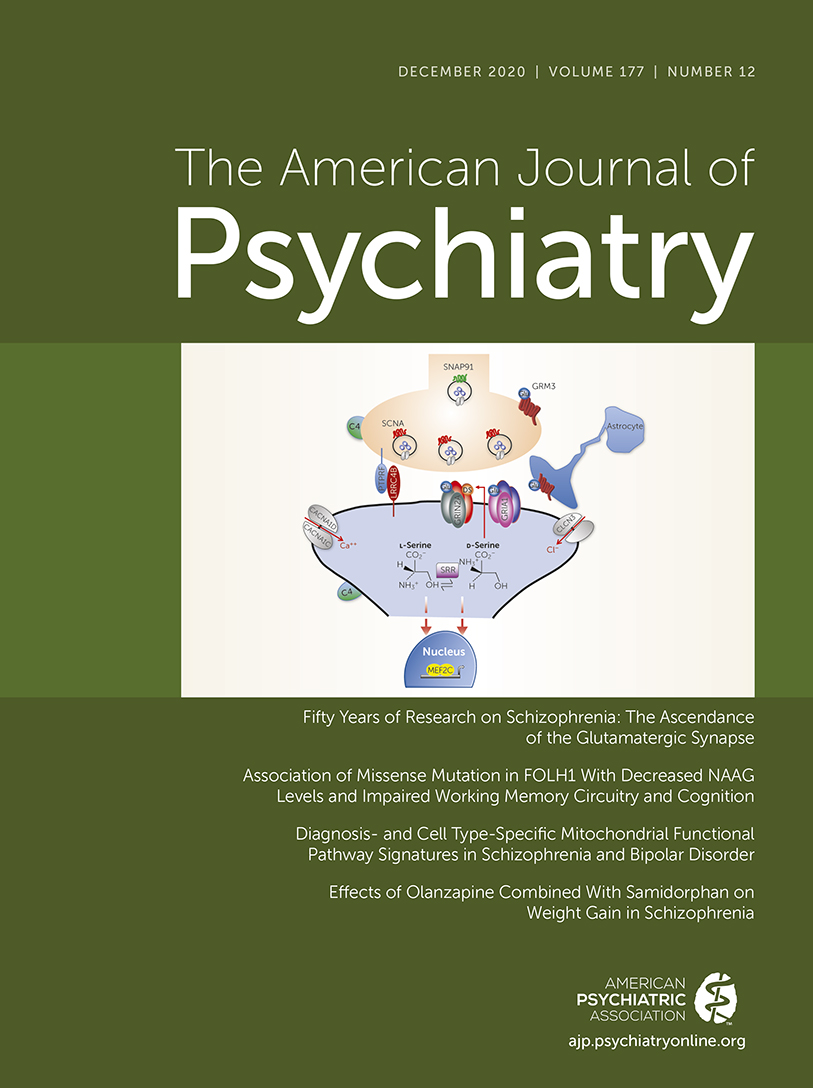Essential Work: Psychiatric Clinical Investigation in the Midst of a Pandemic
The COVID-19 pandemic dropped the curtain on clinical studies in psychiatry with unprecedented speed. Investigators already faced strong headwinds—a move away from drug discovery by big pharma, a shift in federal funding toward more basic neuroscience at the cost of clinical trials, emphasis on dimensional features of illness that conflict with traditional Food and Drug Administration indications, mounting challenges in study recruitment—even with the emergence of a breadth of new targets (1). Now, as clinical researchers contemplate a changed landscape, they have an opportunity to reconsider some basic tenets that have guided clinical investigation for decades. As with clinical practice, research involving human subjects in psychiatry need not and should not simply revert to past models. The following are among opportunities to ensure that efforts continue to develop, validate, and disseminate new interventions.
1. Pursue the “Trial in a Box”
For the past decade, the tools have been available to enable clinical trials to be conducted remotely—not in part, but in full. Electronic health records facilitate recruitment, teleconferencing enables consent and monitoring, and mobile applications allow self-report scales and collection of passive measures (2). If clinical trials of new interventions, not just large-scale effectiveness bake-offs, are to continue, this will change. Truly remote trials can dramatically increase accessibility to particularly vulnerable populations—including those who cannot safely travel to a study site during business hours. If schools in resource-limited areas can provide low-cost laptops to children, investigators can certainly do no less for clinical trial participants.
2. Embrace Common Trial Platforms and Rapid Data Sharing
As COVID-19 exploded around the world, new treatment trials were launched hastily, in many cases with insufficient sample sizes, duplicative efforts, and incompatible designs. This problem sounds all too familiar to psychiatrists accustomed to underpowered studies that yield ambiguous results. Recruitment challenges may finally force investigators to pay more attention to the nontraditional designs common in oncology and other areas of medicine (3). Availability of shared trial platforms and data sources developed to expedite clinical investigation for COVID-19 (4) should also inform future psychiatric studies. Virtual trial networks need not be sinecures granted to well-connected sites but, rather, efficient means of collaboration. At minimum, the embrace of preprint servers and accelerated online data sharing is a trend psychiatry should follow enthusiastically.
3. Recognize That Stressors Drive Symptom Change
COVID-19 and its social consequences represent profound secular trends (5). Individuals enrolled in a trial 3 months before pandemic onset, compared with 6 months later in a changed environment, are likely to look profoundly different clinically. Analytic strategies for study outcomes will need to take this discontinuity into account. In reality, any psychiatrist will recognize the phenomenon of the patient who reports feeling far worse from week to week because of some new adversity, effects rarely modeled systematically in trials. This is a chance to imbue the phrase “computational psychiatry” with meaning at last, leveraging more sophisticated approaches to analyzing time-series data and incorporating individual-level variation.
4. Treat Every Study as a Prevention Study
The new experimental condition imposed by COVID-19 may provide badly needed data about how to prevent or treat adverse outcomes associated with trauma. Trialists should consider, at minimum, adding analyses and measures to explicitly examine the emergence of psychiatric sequelae, even in studies not focused on stress per se. Extending follow-up or adding a 6- or 12-month outcome to acute trials may increase the ability to detect the effect of short-term interventions on longer-term outcomes even if the primary treatment target was not depression or anxiety, generating important hypotheses for future studies. COVID-19 also provides a reminder about the importance of how health disparities affect disease risk and outcomes, effects rarely considered explicitly in clinical trials.
5. Broaden Study Recruitment by Providing Real Therapeutic Options Beyond Placebo
Based on experience with the 2003 outbreak of SARS (severe acute respiratory syndrome) and with the terrorist attacks of September 11, 2001, among others, the psychiatric community quickly recognized the potentially devastating psychiatric impact of the COVID-19 pandemic—both in the near term and in the years to come (6). As a result, a thousand surveys have bloomed, with opportunities to expand psychiatric screening in community settings. These assessments provide a unique opportunity to engage a new group of individuals in clinical trials, provided that investigators can do more to make intervention studies appealing. Given the widespread availability of effective treatments for psychiatric disorders, placebos are very difficult to justify even if they offer advantages in signal detection. Trialists can and should seek to employ active comparators and noninferiority designs: clinical trials should, at minimum, provide standard-of-care treatments.
Clinical investigators are eager to find a new normal. But the constraints imposed by COVID-19 allow an opportunity for a much-needed reconsideration of how new interventions in psychiatry are studied. In a pandemic that began with squandered opportunities to save lives, the psychiatric research community must not miss this next opportunity to save lives.
1 : US mental-health agency’s push for basic research has slashed support for clinical trials. Nature 2017; 546:339Crossref, Medline, Google Scholar
2 : Can electronic health records revive central nervous system clinical trials? Mol Psychiatry 2019; 24:1096–1098Crossref, Medline, Google Scholar
3 : Adaptive trial designs: a review of barriers and opportunities. Trials 2012; 13:145Crossref, Medline, Google Scholar
4 : Randomized clinical trials and COVID-19: managing expectations (editorial). JAMA 2020; 323:2262–2263Crossref, Medline, Google Scholar
5 : The psychological impact of quarantine and how to reduce it: rapid review of the evidence. Lancet 2020; 395:912–920Crossref, Medline, Google Scholar
6 : Depression after exposure to stressful events: lessons learned from the severe acute respiratory syndrome epidemic. Compr Psychiatry 2012; 53:15–23Crossref, Medline, Google Scholar



